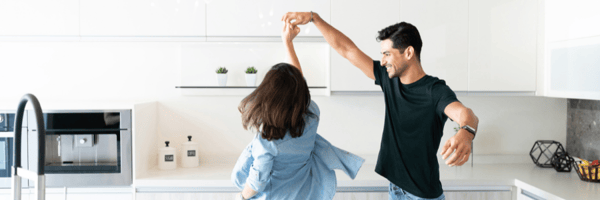If you’re looking to tap into your home’s equity, you have two great choices in a Home Equity Line...
All You Need to Know About Going Solar: Affordable Sustainability
-1.jpg)
Solar panels can benefit the environment and potentially save the homeowner boatloads of money in energy costs. Thanks to the ever-evolving solar industry and generous government incentives, solar panels are more popular than ever. Here’s what to know about going solar.
How solar panels work
Residential solar panels use technology called photovoltaics, or PV. When the sun shines on these panels, photons from the sun are absorbed by the panel cells, creating an electric field across the layers and causing electricity to flow.
Can every roof support solar panels?
In general, the best candidates for solar panels are south-facing roofs with a slope of 15 to 40 degrees that are in decent condition. If your roof doesn’t match these exact criteria, though, it can still be suitable for solar energy, so have a professional evaluate your compatibility options.
The dollars and sense of going solar
The exact amount you’ll save by going solar depends on your monthly energy consumption, utility company rates, the direction, size and slope of your roof, the size of the solar energy system your purchase and whether you choose to buy or lease the panels. Government incentives can make a difference in savings, too.
According to the Center for Sustainable Energy, installing a solar panel system will cost homeowners an average of $20,000, or $14,000 after the federal tax credit. Depending on your home state, there can be additional government incentives to lower the cost.
Solar financing
If you’ve decided to install solar panels on your roof, you have several options for financing the purchase:
- Cash. If you can fund the full purchase in one go, you’ll get the biggest savings.
- Lease agreement. Solar leasing is an option in about half the country. You’ll pay a monthly rent, but typically forego any upfront fees. However, the leasing company will remove the panels after the lease is over, or charge you full price to keep them.
- Solar loan. A secured solar loan will use your home as collateral and offer tax-deductible interest, while an unsecured solar loan will likely have higher interest rates.
- Home Equity Loan or Home Equity Line of Credit (HELOC). One of the most flexible ways to finance your solar panel purchase is through a loan or a line of credit taken out against your home’s value. Speak to an MSRP at Mutual Security Credit Union to learn more.
- MSCU Smart E-Loan. Mutual Security credit Union's long-term, low-interest financing to help you upgrade your home.
Solar panels and the environment
One of the biggest incentives for going solar is the potential to help our environment. As a renewable source of energy, solar power reduces greenhouse gas emissions, like carbon monoxide, into the environment. This translates into less pollution and cleaner air and water.
Use this guide to make an informed decision about changing your home’s energy source.
Your Turn: Is your home solar-powered? Tell us about it in the comments.

-2.png?height=200&name=Blog%20Banner%20(1)-2.png)
.png?height=200&name=8%20ways%20to%20celebrate%20Fathers%20Day%20(49).png)
